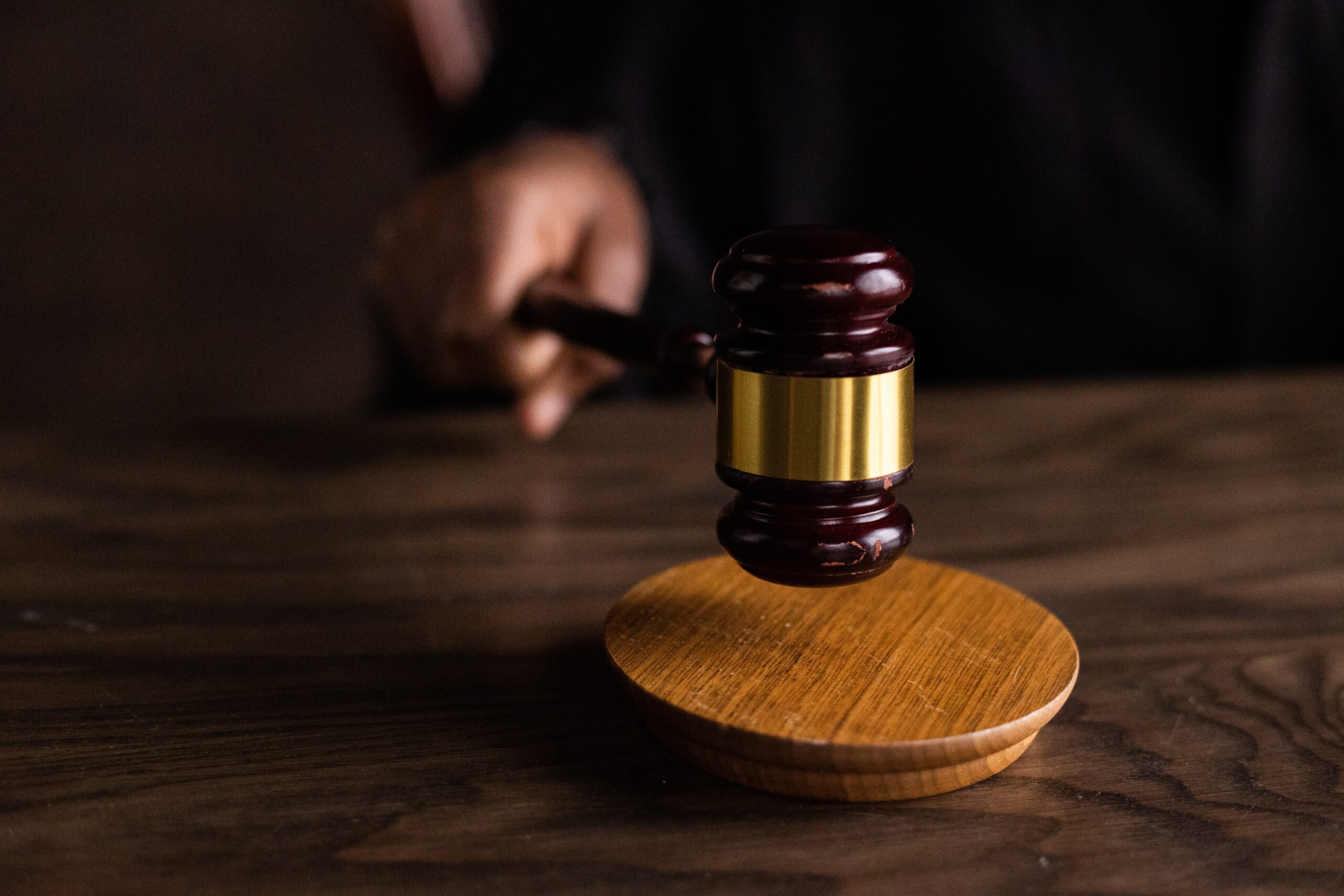
Legal proceedings can be overwhelming, intimidating, and downright scary. Whether you are facing criminal charges, a civil lawsuit, or any other legal matter, the process can be confusing and stressful. However, it’s important to remember that you have rights and options, and with the right guidance and support, you can successfully defend yourself. That’s where expert advice comes in. By working with experienced legal professionals, you can gain a better understanding of the legal system, your rights, and the best strategies for defending yourself. In this article, we will provide you with some valuable insights and tips from legal experts on how to properly defend yourself in legal proceedings. From understanding the charges against you to building a strong defense, we’ve got you covered. So, don’t let legal proceedings overwhelm you. Take control of the situation and get the expert advice you need to successfully defend yourself.
Understanding Legal Proceedings
Legal proceedings can be complex and confusing, especially if you are not familiar with the legal system. Whether you are facing a criminal charge or a civil lawsuit, it is essential to have a basic understanding of the legal process. Typically, legal proceedings begin with an arrest, a complaint, or a lawsuit. The prosecution or plaintiff then presents evidence and arguments to prove their case. The defense, on the other hand, presents counterarguments and evidence to refute the prosecution’s or plaintiff’s case. The judge or jury then makes a decision based on the evidence and arguments presented.
It is important to note that legal proceedings can vary depending on the type of case and the jurisdiction. For example, criminal cases typically involve the state or federal government prosecuting an individual for violating a criminal law, while civil cases involve two parties disputing a legal matter. Additionally, legal proceedings can take anywhere from a few weeks to several years to resolve, depending on the complexity of the case.
Understanding the basics of legal proceedings can help you navigate the legal system and better prepare for your defense. However, it is important to seek expert legal advice from a qualified attorney to ensure that you have the best possible defense.
The Importance of Proper Legal Defense
Proper legal defense is essential for protecting your rights and ensuring a fair trial. Without proper legal representation, you risk being unfairly convicted or losing your case. A skilled attorney can help you understand the charges against you, the evidence presented, and the potential consequences of a guilty verdict.
Additionally, a good defense attorney can help you develop a strong defense strategy, gather evidence, and cross-examine witnesses. They can also negotiate with the prosecution or plaintiff to potentially reduce charges or settle out of court.
It is also important to remember that you have the right to remain silent and the right to an attorney. These rights are protected by the Fifth and Sixth Amendments to the United States Constitution. If you are arrested or charged with a crime, it is important to exercise these rights and seek legal representation as soon as possible.
Hiring a Lawyer: What to Look For
When it comes to hiring a lawyer, it is important to choose someone who is experienced, knowledgeable, and trustworthy. Here are some key factors to consider when hiring a lawyer:
Experience: Look for a lawyer who has experience in the specific area of law that your case involves. For example, if you are facing DUI charges, look for an experienced Knoxville DUI lawyer or one in your area.
Credentials: Check the lawyer’s credentials, including their education, professional associations, and any awards or publications.
Communication skills: Choose a lawyer who is a good communicator and keeps you informed throughout the legal process.
Availability: Make sure the lawyer has the time and resources to dedicate to your case.
Fees: Understand the lawyer’s fee structure and make sure it is reasonable and transparent.
You have the right to choose your own lawyer. Don’t feel pressured to hire the first lawyer you meet with. Shop around and choose someone who you feel comfortable working with and who has your best interests in mind.
Preparing for Your Defense: Key Considerations
Preparing for your defense is a crucial part of the legal process. Here are some key considerations to keep in mind:
Gather evidence: Work with your attorney to gather evidence that supports your defense. This may include witness testimony, physical evidence, and expert opinions.
Review the evidence against you: Make sure you understand the evidence presented by the prosecution or plaintiff. Your attorney can help you analyze the evidence and identify any weaknesses in your case.
Develop a defense strategy: Work with your attorney to develop a strong defense strategy that takes into account the evidence against you and the legal arguments that can be made in your favor.
Prepare for cross-examination: If you are called to testify, make sure you are prepared for cross-examination by the prosecution or plaintiff. Work with your attorney to anticipate questions and develop effective responses.
The more time and effort you put into preparing for your defense, the better your chances of success.
Developing a Legal Strategy: Tips from the Experts
Developing a legal strategy is key to successfully defending yourself in legal proceedings. Here are some tips from legal experts on how to develop an effective legal strategy:
Understand the charges against you: Make sure you understand the charges against you and the potential consequences of a guilty verdict.
Analyze the evidence: Work with your attorney to analyze the evidence presented by the prosecution or plaintiff and identify any weaknesses in their case.
Identify legal arguments: Identify legal arguments that can be made in your favor, such as the lack of evidence, a violation of your constitutional rights, or a mistake by law enforcement.
Prepare for trial: If your case goes to trial, make sure you are prepared to present your defense effectively. This may involve developing opening and closing statements, cross-examining witnesses, and presenting evidence.
Developing a strong legal strategy takes time and effort. Work closely with your attorney to ensure that you have the best possible defense.
Common Legal Defenses and Their Effectiveness
There are a variety of legal defenses that can be used to defend against criminal charges or civil lawsuits. Here are some common legal defenses and their effectiveness:
Alibi: An alibi defense involves proving that you were somewhere else at the time the crime was committed. This defense is effective if you have a credible alibi and can provide evidence to support it.
Self-defense: A self-defense defense involves proving that you acted in self-defense to protect yourself from harm. This defense is effective if you can prove that you were in imminent danger and used only the amount of force necessary to protect yourself.
Mistake of fact: A mistake of fact defense involves proving that you believed something to be true that was not and that this belief led you to commit the crime. This defense is effective if you can prove that your mistake was reasonable and that you would not have committed the crime if you had known the truth.
The effectiveness of a legal defense will depend on the specifics of your case and the evidence presented. Work closely with your attorney to determine the best defense strategy for your situation.
Navigating the Courtroom: Dos and Don’ts
Navigating the courtroom can be intimidating, but there are some dos and don’ts that can help you make a good impression and present your case effectively:
Do dress appropriately: Dress in business attire and make sure you are clean and well-groomed.
Do be respectful: Be respectful to the judge, the jury, and the opposing counsel.
Do listen carefully: Listen carefully to the questions asked and answer them truthfully and to the best of your ability.
Don’t interrupt: Avoid interrupting the judge or the opposing counsel.
Don’t argue with the judge: If the judge rules against you, don’t argue with them. Instead, accept their ruling and move on.
The courtroom is a professional setting, and it is important to conduct yourself accordingly.
Understanding the Appeals Process
If you are unhappy with the outcome of your trial, you may be able to appeal the decision. The appeals process involves asking a higher court to review the decision made by the lower court. Here are some key considerations to keep in mind:
Grounds for appeal: You can only appeal if there are legal grounds to do so, such as a procedural error or a mistake by the judge.
Deadline: There is a deadline for filing an appeal, typically within 30-60 days of the lower court’s decision.
Appeals process: The appeals process can take several months to a year to complete, and involves presenting arguments and evidence to a panel of judges.
The appeals process can be complex and time-consuming. Work with an experienced attorney to determine whether an appeal is the right course of action for your situation.
Resources for Legal Assistance and Support
If you are facing legal proceedings and need assistance or support, there are several resources available:
Legal aid organizations: Legal aid organizations provide free or low-cost legal services to individuals who cannot afford an attorney.
Bar associations: Local bar associations can provide referrals to qualified attorneys in your area.
Courthouse self-help centers: Many courthouses have self-help centers that provide information and assistance to individuals representing themselves in legal proceedings.
Support groups: Support groups can provide emotional support and information to individuals going through legal proceedings.
You don’t have to face legal proceedings alone. There are resources available to help you navigate the legal system and defend yourself effectively.
Conclusion
Legal proceedings can be overwhelming and stressful, but with the right guidance and support, you can successfully defend yourself. Remember to seek expert legal advice, hire a qualified attorney, and prepare thoroughly for your defense. By understanding the legal process, developing a strong defense strategy, and presenting your case effectively, you can achieve a positive outcome in your legal proceedings. Don’t let legal proceedings overwhelm you. Take control of the situation and get the expert advice you need to successfully defend yourself.


